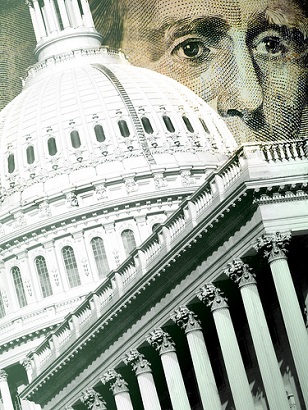 Jared Rodriguez / Truthout; Adapted: Thomas Hawk, Rob Shenk)” width=”308″ height=”410″ />(Image: Jared Rodriguez / Truthout; Adapted: Thomas Hawk, Rob Shenk)Truthout needs your support to produce grassroots journalism and disseminate conscientious visions for a brighter future. Contribute now by clicking here.
Jared Rodriguez / Truthout; Adapted: Thomas Hawk, Rob Shenk)” width=”308″ height=”410″ />(Image: Jared Rodriguez / Truthout; Adapted: Thomas Hawk, Rob Shenk)Truthout needs your support to produce grassroots journalism and disseminate conscientious visions for a brighter future. Contribute now by clicking here.
In the 2012 Citizens United case, the Supreme Court ruled that the ban on corporate contributions in federal elections was unconstitutional – paving the way for super PACS, which have since made a mockery out of US presidential elections. As countries in Europe have consistently managed to find ways to regulate campaign financing, the US has moved further toward a system of big-dollar contributions.
The early announcement in January 2014 that Priorities USA Action, which helped boost President Obama to victory in the 2012 elections, would be backing Hillary Clinton in her potential 2016 presidential bid has kicked up a new fuss over the role of super PACS in American campaigns. The declaration marks the start of a big-bucks fundraising effort for Clinton and has again raised questions about the role and influence of the super rich and top corporations in US elections.
Most of this “super money” will be spent on radio and television ad campaigns either for Clinton herself or to rebuff Republican blows. Despite the lack of confirmation by Clinton of her decision to run in the next election, Priorities has already vowed to surpass the $67 million it spent on attack ads against Mitt Romney in the 2012 campaign. This highlights the risk that future presidential elections will again be plagued with candidate-bashing rather than real political content.
In the 2012 presidential campaign, Obama and Mitt Romney forked out the extravagant sums of $985.7 million and $992 million, respectively. On top of these already hefty sums, nonprofit groups and super PACS spent an additional $65 million on TV and radio ads, further encouraging a system in which candidates compete on the basis of media wars rather than on their roadmaps for change.
One example of how Europe has limited the influence of money in its elections is the case of France. Time Magazine described the US campaigns as “bottomless-pocketed, influence-peddling, ultimate fighting Goofuses” in comparison with the French equivalents, which were dubbed as “parsimonious” and “noble minded Gallants.” That is not to say that French electoral campaigns are pictures of perfection, but they have found several ways to limit corrupt practices. While individual contributions to candidates have a plentiful limit of $5,980 in comparison to the modest $2,500 of their Yank counterparts, the French system contains no loopholes such as the super PACS, which accept unlimited contributions.
In addition, in France it is illegal for corporations, unions and other special interests to make contributions to candidates. The country focuses its political campaigns on debating actual policy alternatives, strictly prohibiting the purchase of broadcasting space for “political commercials.”
Germany is another fine example of a system dedicated to cheaper and cleaner politics. All campaigns are primarily funded by the government, with only one-third of the cost being covered by corporate and individual donations. Parties are allocated a specific limit for television advertising and, unlike the rough public ridiculing of opponents that takes place in the US, there are no attack ads. Each party is allowed only one 90-second ad that will run for the entire election, starkly contrasting with the $400 million both Obama and Romney spent on television ads.
Hungary has also made strides in the right direction, choosing to follow the example of France in its electoral reform prior to its April 6 parliamentary elections.
Viktor Orban and his governing coalition have banned paid campaign ads in commercial media, and have allocated free and equal access to both public and private media networks to all eligible candidates. This presents each party with an equal opportunity to present their political values and ideas, implying that candidates should be judged on political merit rather than on the size of their wallet. Democracy should not come at a price and candidates and parties shouldn’t have to dole out wads of cash in order to win voters.
In the US, the campaign system is pricy and favors those who can buy influence, not ideal for a country that considers itself the beacon of democratic values. Rather than rushing to instill democracy in far-flung places, US policymakers should first look under their noses and tackle the problems of corruption at home. They should look at their friends across the Atlantic and their tactics to reform campaign financing to ensure elections are a serious occasion, rather than a circus show.
Our most important fundraising appeal of the year
December is the most critical time of year for Truthout, because our nonprofit news is funded almost entirely by individual donations from readers like you. So before you navigate away, we ask that you take just a second to support Truthout with a tax-deductible donation.
This year is a little different. We are up against a far-reaching, wide-scale attack on press freedom coming from the Trump administration. 2025 was a year of frightening censorship, news industry corporate consolidation, and worsening financial conditions for progressive nonprofits across the board.
We can only resist Trump’s agenda by cultivating a strong base of support. The right-wing mediasphere is funded comfortably by billionaire owners and venture capitalist philanthropists. At Truthout, we have you.
We’ve set an ambitious target for our year-end campaign — a goal of $250,000 to keep up our fight against authoritarianism in 2026. Please take a meaningful action in this fight: make a one-time or monthly donation to Truthout before December 31. If you have the means, please dig deep.
